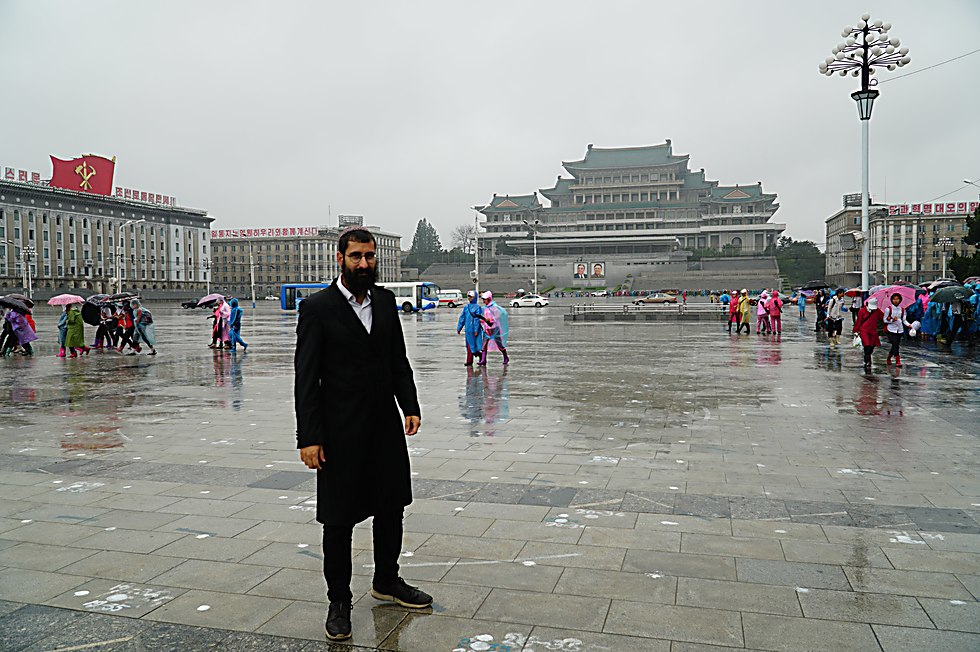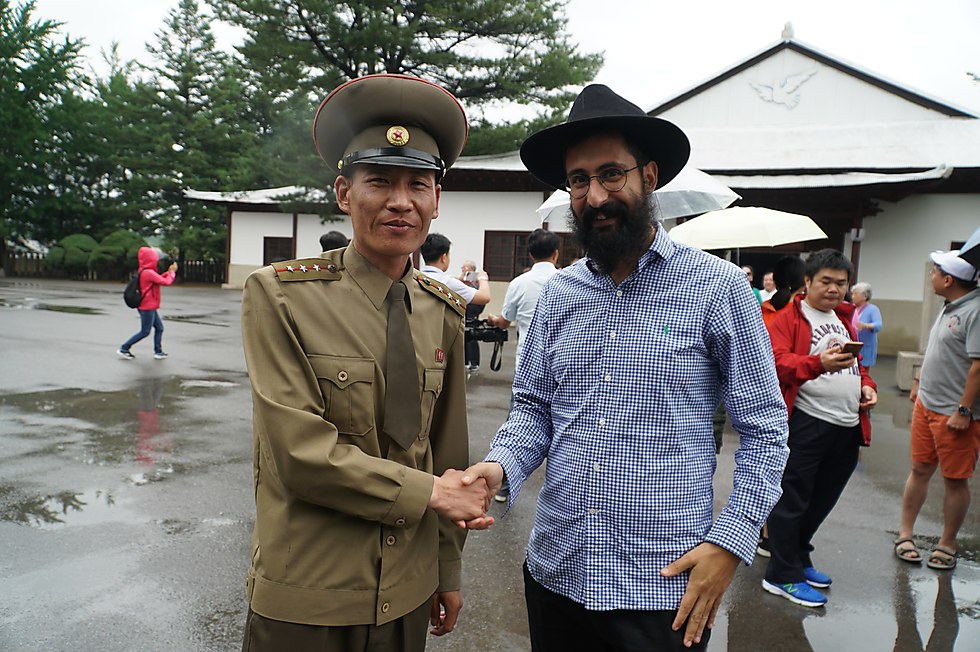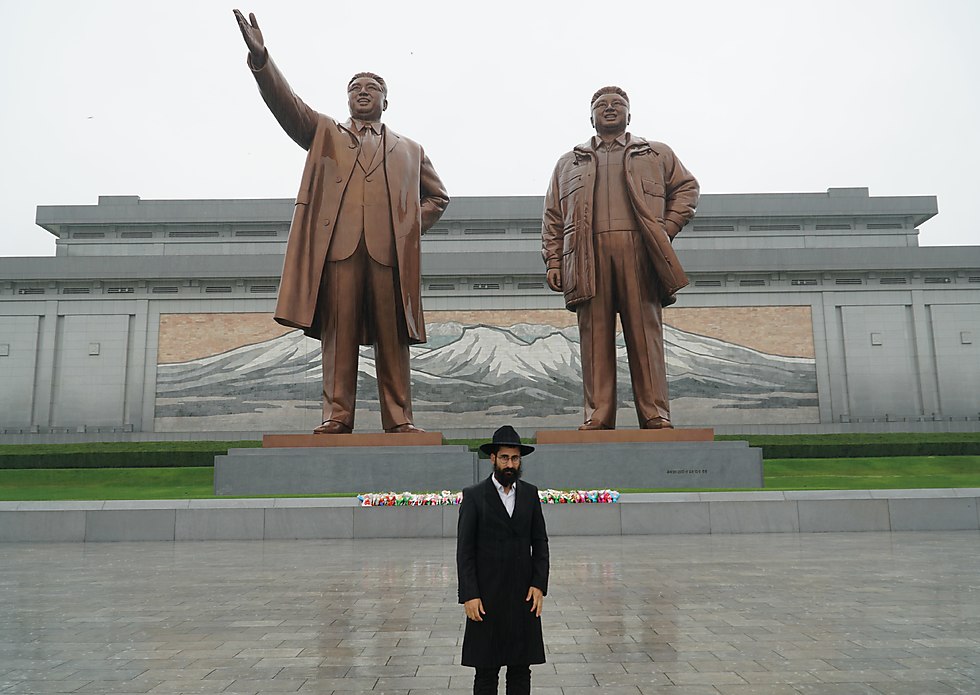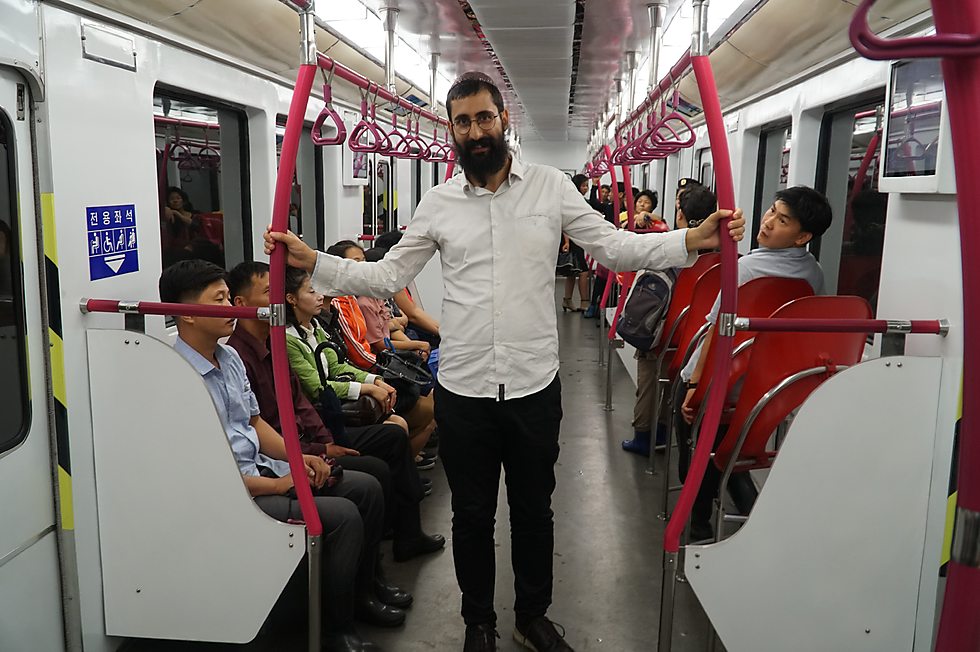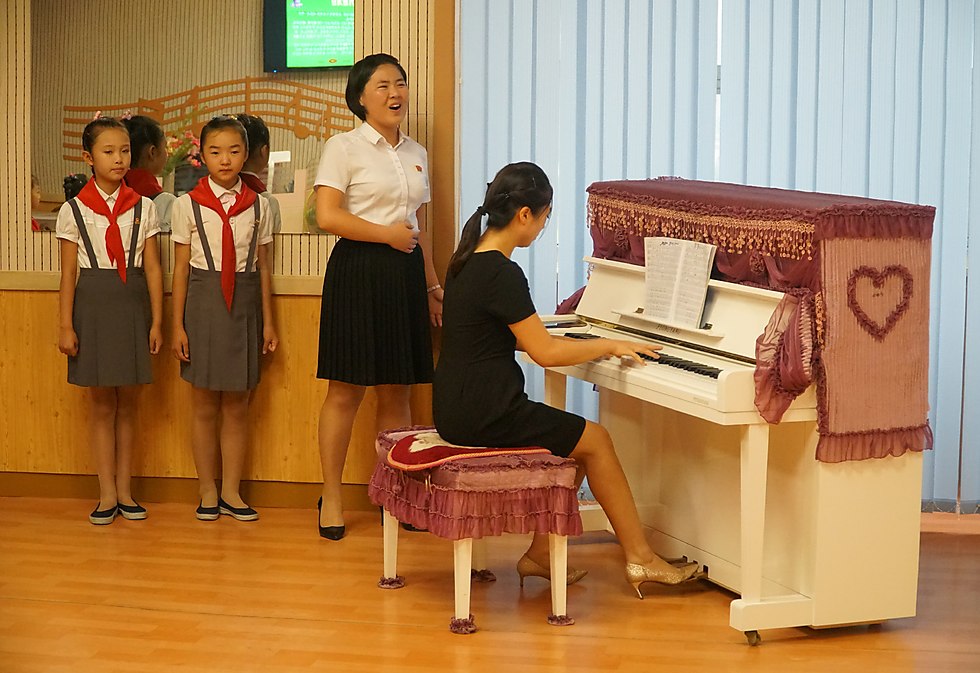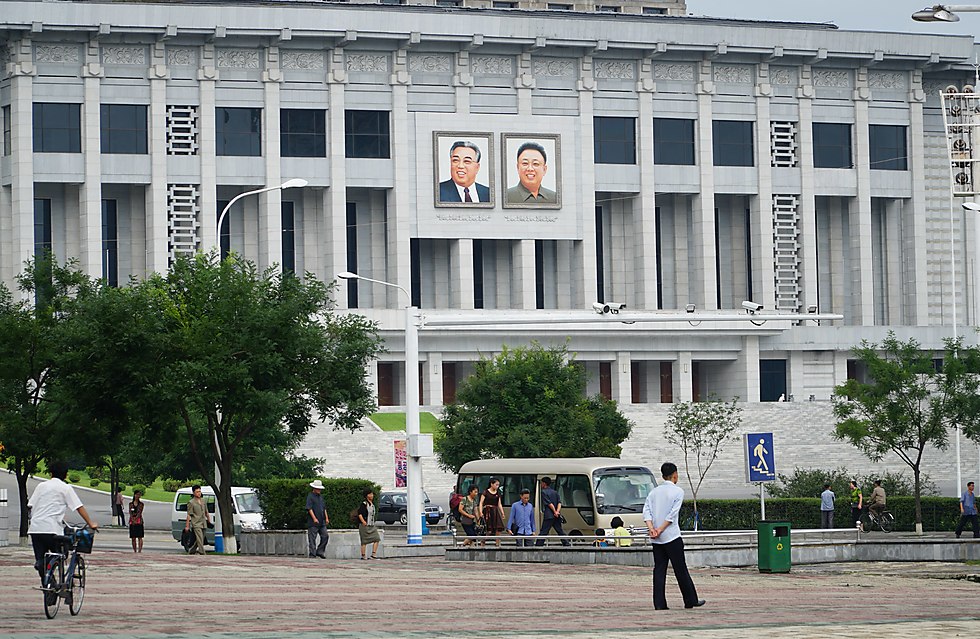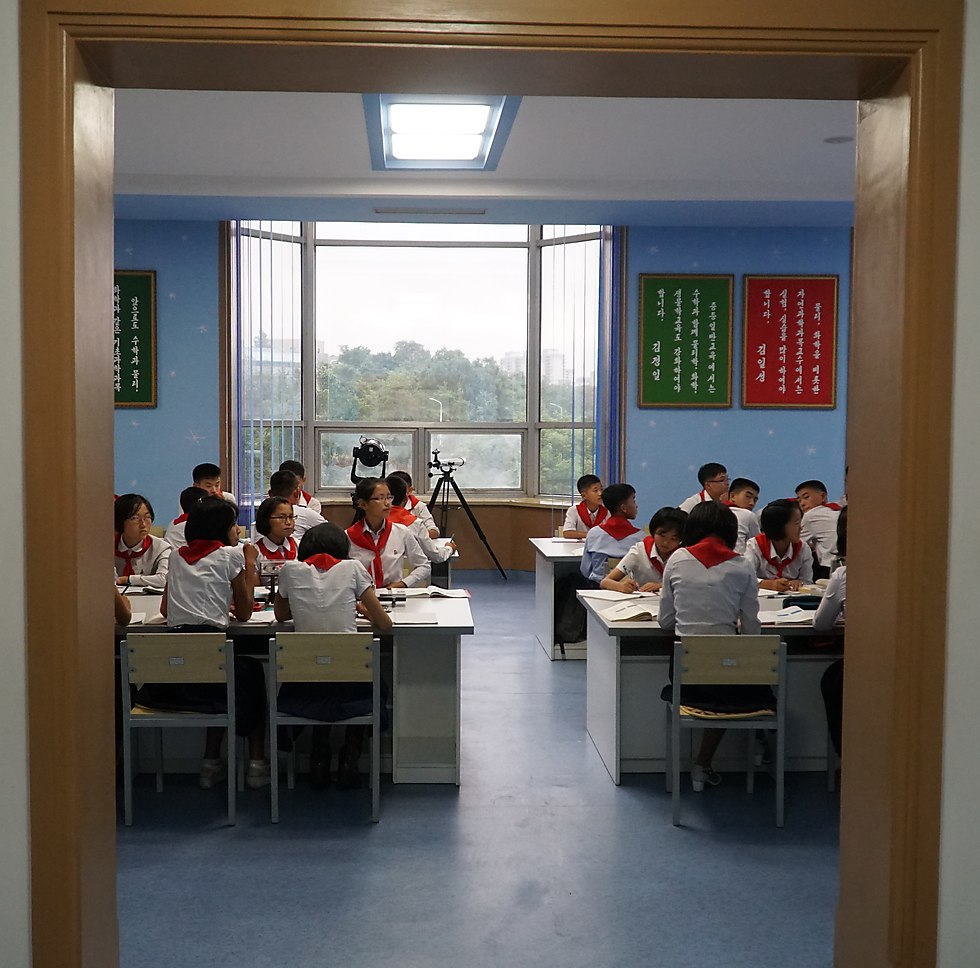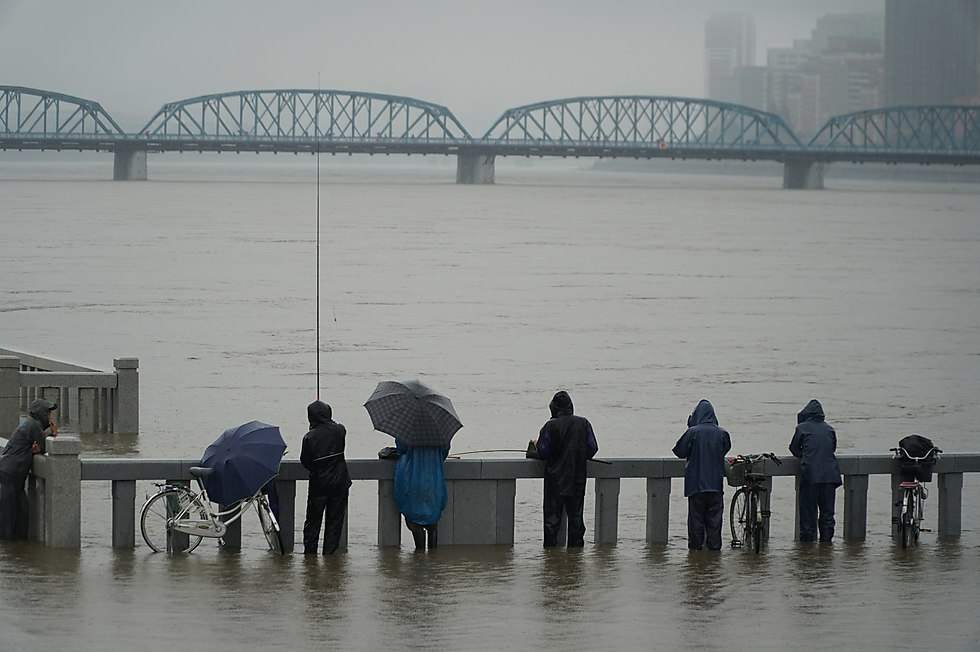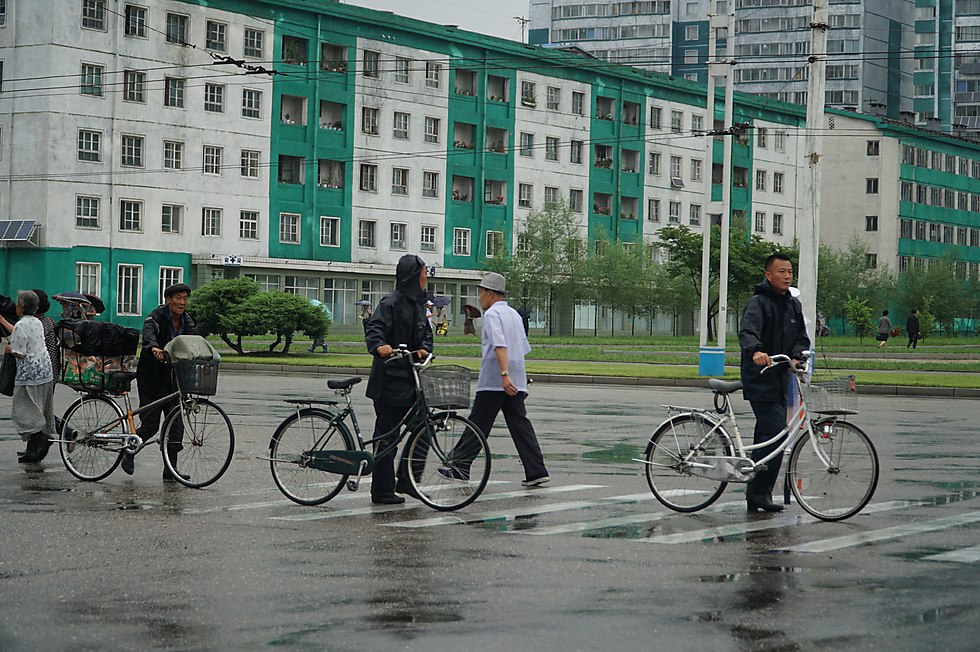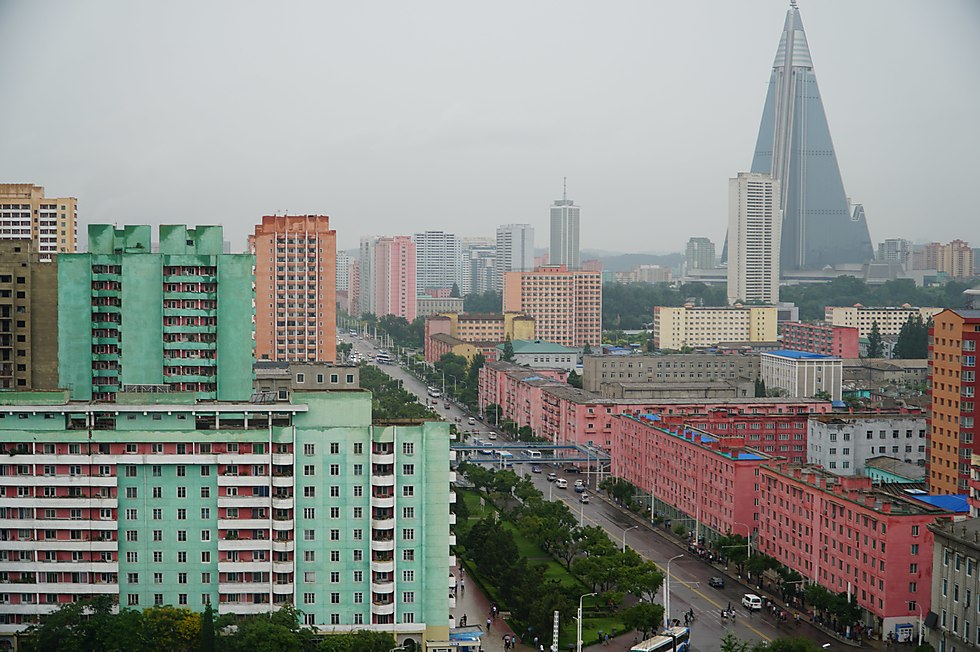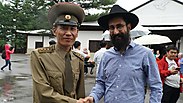
An ultra-Orthodox Jew in Pyongyang
Chabad’s 'emissary at large' visits North Korea, where he’s forced to bow before the statue of the supreme leader—and whispers a Jewish prayer as he does so.
“You caught me in between flights,” says 33-year-old Alfasi. “I just returned from a long journey with my wife in Thailand and Philippines. Before that, we did Passover in Kosovo—they thought we were Syrian refugees, wandering around with all our children and food supplies.”
“It was so exciting, we had an amazing Seder dinner, Jews and Muslims together, and they learned about the Jewish Passover for the first time,” Alfasi says with sparkling eyes.
For Alfasi, no family vacation is trivial—not when you’re travelling with four children as a news agencies photographer. But Alfasi, who is also an ultra-Orthodox wedding photographer, said he feels that he has to get away often, for emissary work, or just a hunt for new vistas.
But why North Korea, of all places? It’s the world’s most closed-off county.
“Exactly because of that,” Alfasi answers honestly. “When I started reading about this country, and about the crazy leader who killed his own family, I told myself: this is where I need to be. And it’s not that I haven’t already visited dangerous places. When I went to Tunisia, ISIS thought I was an American Muslim, that’s how I presented myself. They tried to recruit me. Today you can go anywhere with an Israeli passport—it’s getting out that might be tricky.”
US President Donald Trump’s meeting with North Korean Supreme Leader Kim Jong-un was what what triggered Alfasi’s idea to visit.
“I wanted to be the first Chabad emissary there—so that others may follow. In the beginning I said I was a teacher because journalists aren’t allowed in—they’re considered the greatest enemy. I had to file lots of paperwork, and then my contact said I didn’t pass their tests. They saw a picture of me in an English news website, they were on to me.
“Then,” Alfasi says as continues the paperwork saga, “I said I was a photographer. They finally agreed, but I had to sign a document saying that if I slandered the Democratic People's Republic of Korea—that’s what they call themselves—I would have to pay reparations. I was also told not to bring in any kind of camera or post any social media posts with pictures.”
“So I went to China and then got on a rusty old Russian plane going to Pyongyang, with Korean revolutionary hymns playing in the background. It was only me and three other Westerners on that flight—the rest were from the Korean tennis team, all wearing mandatory pins with a picture of their beloved leader. No one would talk to me.”
It was at this point, Alfasi says, "I started having doubts. I thought, what did I get myself into? It’s better if I die in a plane crash than under torture in North Korea. Then, we landed in the world’s most forsaken and deserted airport.”
Despite the ban on bringing in cameras, Alfasi took three. The bible or any kind of religious object is also forbidden, but of course Alfasi wouldn’t give up on his prayer book or tefillin. Luckily, the cameras were ignored, but the religious objects weren’t—and if the prayer book wasn’t enough, Alfasi was carrying small cards detailing theSeven Laws of Noah for gentiles, that he planned to distribute in the world’s cruelest tyranny of our age.
“I told myself that they wouldn't check my wallet,” Alfasi says when I asked about his nerve. “What could I possibly do as an ultra-Orthodox Chabad man to harm anyone or anything? I know it’s a death sentence to be caught doing such things. Worse than the case of that poor American student, who allegedly tore a propaganda poster and ended up in a coma—and then passed away.”
“Of course, they checked everything. They wanted to hammer-open my tefillin, and I tried to tell them to stop. Then they called in my guide, who was supposed to be at my side at all times. I explained it was a box that you tie on your arm—and mentioned nothing about religion. They then gave up and returned the prayer book and tefillin,” Alfasi says of his amazing close call.
Then, his tightly organized tour took off. “There were three people around me at all times. The hotel was empty. The other Westerners I
met wouldn’t talk to me, People there are scared and rightfully so. Everyone is paranoid, and eventually I also became paranoid.”
The next day, Alfasi’s guides decided to take him on a tour of the border with South Korea, a three-hour journey by car. “This was my one opportunity to see the real North Korea, that they don’t want you to see," he says. "Then we had a flat tire and they got freaked out, since it messed up the show they were putting on for tourists. I saw thin, starving children, wearing torn clothes, collecting dirt.”
Then, things got scary. “At some point, three soldiers came up and took me aside. I was terrified, and thought that there’s no way I’m getting out of this one. Then, an officer came in and started asking questions about Trump, and if I think it’s likely that they could achieve peace with the U.S. I could see they’re dying for any kind of information, and then I started freaking out that they wanted me to be a spy.”
Alfasi had prepared in advance for the chance things go sour. “I left a phone number with the embassy and lawyers before I left, and told them to start looking for me if I don’t return in four days.”
As the disturbing journey continued, Alfasi was taken to see North Korean state monuments. “We visited squares with statues of leaders, and you’re supposed to bow to them. I was told not to put my hands in my pocket or hold them behind me, or take a selfie. I also had to buy flowers in honor of 'our great leaders, to whom we owe our lives.' What could I do? I had to bow, there was no choice but to decide between dying sanctifying God’s name or doing what I was told.”
So what does a Chabad follower do in such a case? Alfasi bowed, while saying the “Aleynu leshabeach” blessing, which includes a bow: “Before thee, O Lord our God, let them bow and fall.”
But it didn’t go smoothly. “I got so panicked that I didn’t notice I was holding my hands behind my back. It wasn’t even a second, and then the guides started hitting me. From that moment on, I became terrified. The violence made it real. I couldn’t sleep at night anymore and I just prayed to be out of there. The next morning, the guide asked me why I talk to myself, referring to my prayers. Until that very moment, I didn’t realize they were listening to everything, and my paranoia sky rocketed.”
Alfasi was allowed to make phone calls, but they weren’t private. “You can’t go out by yourself and can’t contact anyone. I called home and my family saw the number on the screen, that said I was in North Korea. They asked if that’s where I was and I denied it and said I was in China.”
“You learn a lot about them when you watch them for a few days,” says Alfasi of North Koreans. “They’re similar to ultra-Orthodox Jews in some ways—they have arranged marriages. Girls get married at 24-28, and guys at 28-32. They don’t spend time together before the wedding, which is arranged by a matchmaker or relatives. I showed them photos of our weddings. They were shocked to see how it looks, and were impressed with the Shtreimel hat the groom wears and the bridal dresses.”
Alfasi didn’t hide his nationality from anyone, and says he got very positive responses from people. “I was accepted with open arms wherever I said I was from Israel. They identify with us: a small country, with nuclear power, surrounded by enemies. I invited them to Israel and said I’d pay for the journey—but of course they can’t get out, so they said they were too busy.”
North Korea, Alfasi says, is “the world’s biggest show.”
“They show you the best museums, and the best- dressed people on the main streets—but it’s all a show. If I took a picture that they didn’t like, they told me to erase it instantly. When I left I could see tears in their eyes. I get to leave, and they can’t go anywhere.”
Alfasi couldn’t help himself, and just before he got on the plane, he took out one of the cards he brought with the Seven Laws of Noah and gave it to his guide. “I told him that this is my business card. Their president breaks basic commandments daily—”Thou shalt not kill” and “Thou shalt not steal”—not to mention the Seven Laws on Noah. He’s their god, they pray to him. There's nothing I can do about the way he is. But perhaps it would benefit them.”
Alfasi sums up his visit with a smile: “They might not have Coca Cola—but they did have a Chabad representative.”










